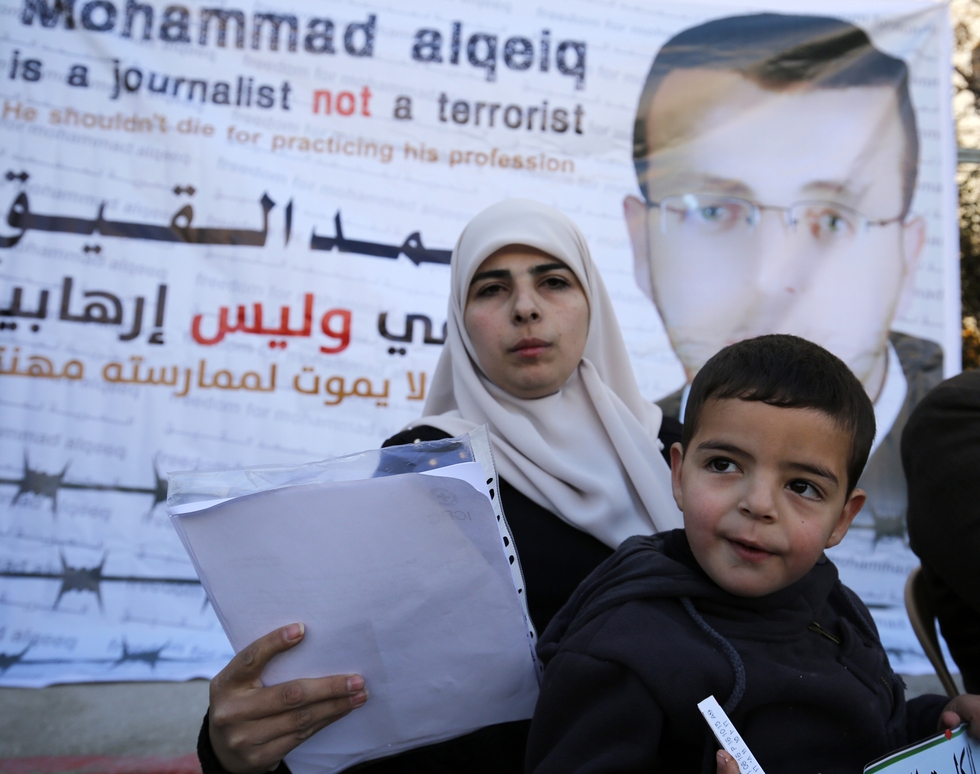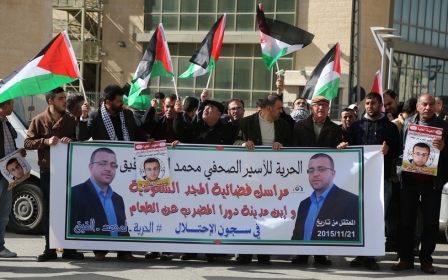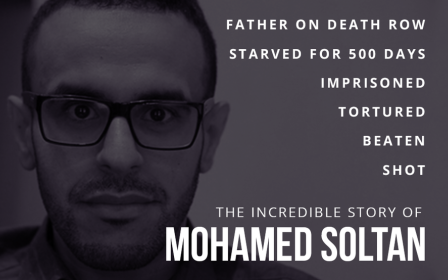Palestinian hunger striker loses power of speech: Lawyer

A Palestinian detained by Israel and on hunger strike for over two months has lost his ability to speak and most of his hearing, his lawyer and family said Sunday.
Mohammed al-Qiq's condition is "very dangerous. He lost his ability to speak and 60 percent of his hearing," his lawyer Jawad Boulus said in a statement.
Boulus visited Qiq on Sunday at the Emek Medical Centre in the northern Israeli city of Afula, where he is being treated.
Speaking at a press conference, Qiq's wife Faihaa said doctors had told her family that her husband could no longer speak.
"What are they waiting for in order to release my husband or look into his arrest?" she asked, and answered: "Until he suffers a brain haemorrhage or becomes a martyr."
A spokeswomen for the hospital and the Israel prison service would not comment on the reports.
Qiq, a 33-year-old correspondent for Saudi Arabia's Almajd TV network, was arrested on November 21 at his home in the West Bank city of Ramallah.
He is being held under Israel's administrative detention law, which allows the state to hold suspects for renewable six-month periods without trial.
Qiq, who is married with two children, has been refusing food since 25 November in protest against the "torture and ill treatment that he was subjected to during interrogation," according to Addameer, a Palestinian rights organisation.
He has appealed against his internment but Israel's Supreme Court refused to order his release on 27 January although it said it would follow his health on a daily basis.
Shin Bet, the Israeli domestic security service, says Qiq was arrested for "terrorism activity" as part of the Hamas group, which controls the Gaza Strip.
Qiq was jailed for a month in 2003 and then for 13 months in 2004 for Hamas-related activities.
In 2008, he was sentenced to 16 months on charges linked to his activities on the student council at the West Bank's Birzeit University.
Middle East Eye propose une couverture et une analyse indépendantes et incomparables du Moyen-Orient, de l’Afrique du Nord et d’autres régions du monde. Pour en savoir plus sur la reprise de ce contenu et les frais qui s’appliquent, veuillez remplir ce formulaire [en anglais]. Pour en savoir plus sur MEE, cliquez ici [en anglais].




